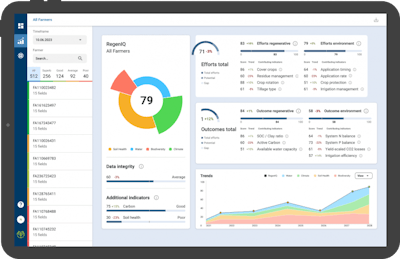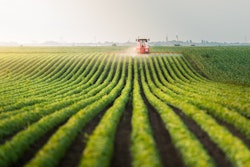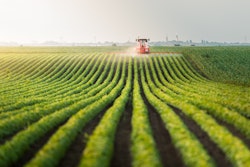
Agmatix launched RegenIQ, designed to drive the adoption of regenerative agriculture by offering a structured approach to assessing the impact of field-level efforts.
With RegenIQ, companies can confidently track and achieve their environmental, social, governance (ESG) goals and Scope 3 requirements by actively working with growers at scale.
“In an industry where profit margins are tight, growers are understandably cautious about investing in farming techniques that don’t guarantee strong returns. RegenIQ addresses this concern by focusing on efficient resource use and financial viability, helping to derisk investment decisions. It provides essential data for food and beverage companies, agronomists, and growers to evaluate the viability and potential impact of regenerative practices on their operations. From smallholder farms to large commercial operations, RegenIQ helps make fields more productive while minimizing environmental impacts and ensuring a more resilient supply chain,” says Ron Baruchi, CEO of Agmatix.
Key takeaways:
- By connecting agrifood companies to real-time field-level activities, RegenIQ enables them to tailor regenerative practices to specific crops and conditions through a standardized, data-driven approach.
- RegenIQ offers a scalable and adaptable approach to assessing the impact of local practices on environmental outcomes and crop yields across soil health, water, biodiversity, and climate.
- By integrating remote sensing data with ground-truth data from Agmatix’s Sustainability Solutions, RegenIQ ensures adaptability to any crop and location, providing comprehensive assessments across the four impact areas.
“The adoption rate of regenerative practices must triple to limit climate change to a 1.5-degree increase,” adds Baruchi. “The biggest challenge to achieving that is the lack of a holistic, adaptable approach to assessing the impact of these practices. Without clear assessments, it is difficult for both growers and food and beverage companies to gauge the value of their investments in regenerative practices. That’s why RegenIQ is so important—it provides the knowledge and confidence needed for businesses of all sizes to successfully support and scale regenerative agriculture.”


















